
Discover egress window installation costs, and learn about average prices, cost factors, and ways to save on your egress window project.
If your basement is a bit gloomy, installing new windows is a bright idea


With their lack of natural light, basements have a tendency to feel dreary. But even the most drab of basements can be improved by knowing the right types of windows to let some light pour in—whether you use your basement as a rec room, for storage, or even an apartment. Keep reading to learn about seven popular types of basement windows and the pros and cons of each.
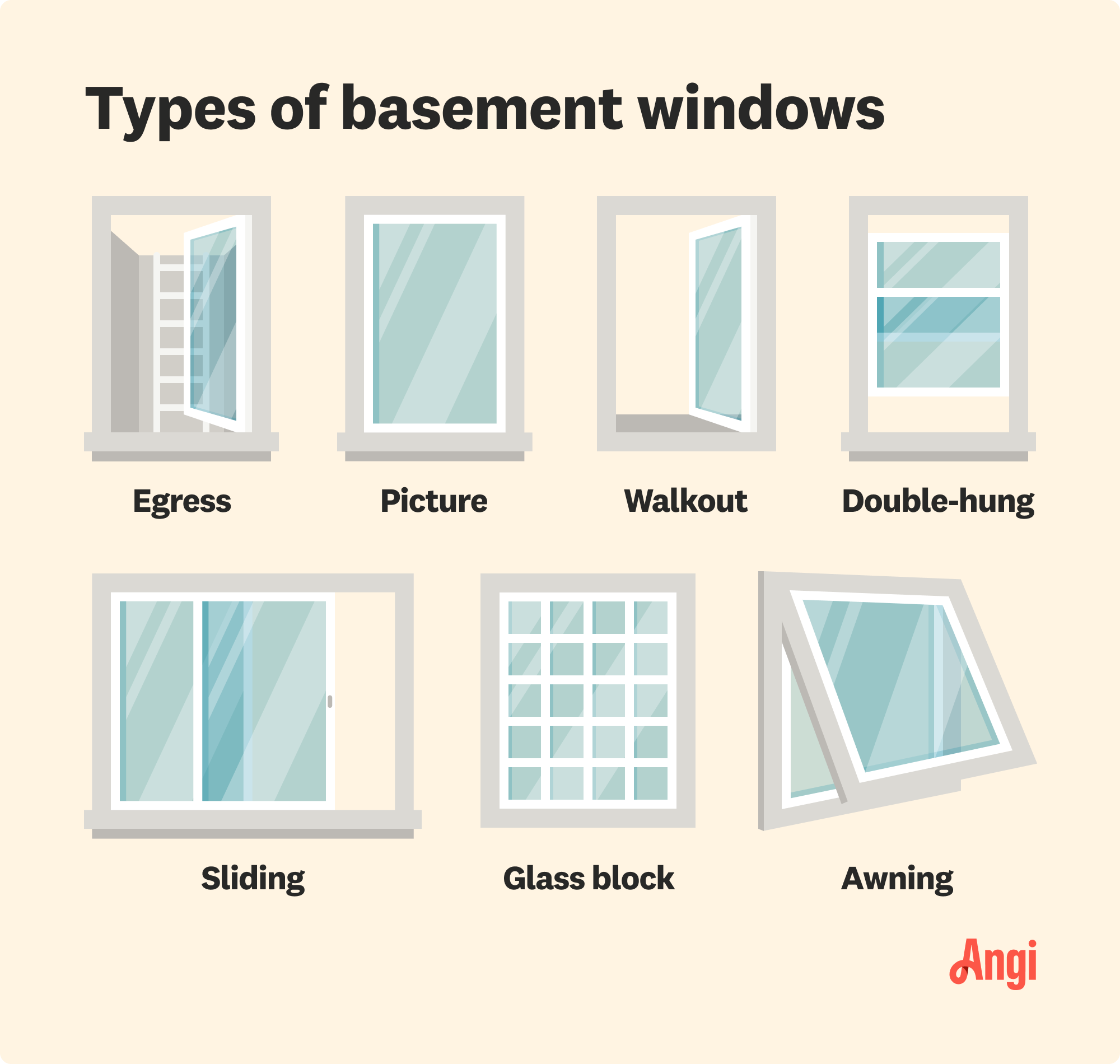
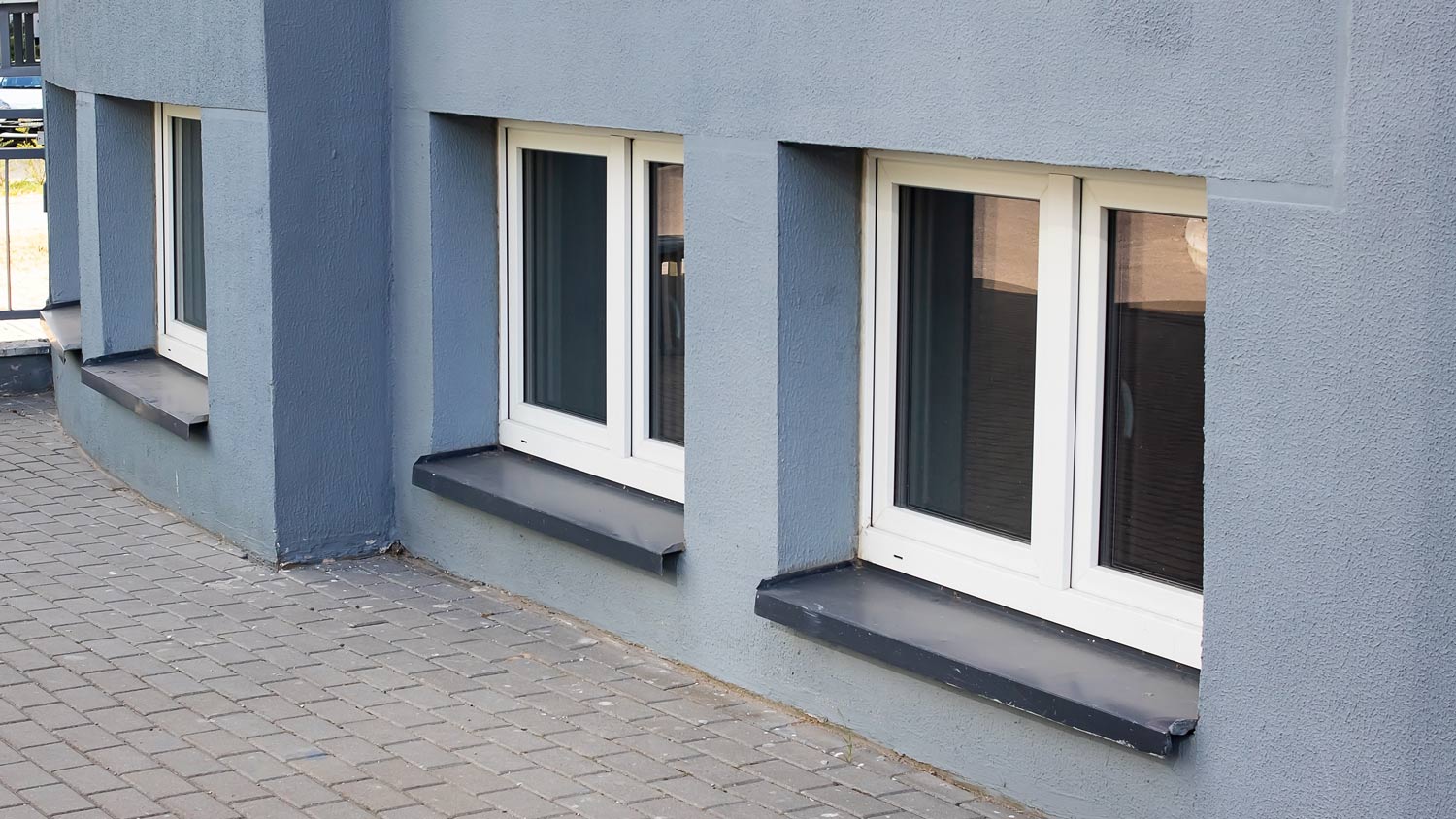
Egress windows are specifically designed to provide an emergency exit/entry, hence they have a window well outside with steps or a ladder accessible. Because they’re designed to be a safe way to exit or enter in case of emergency, they are bigger than your average basement window and can let some extra light in. That being said, the cost of an egress window can be a bit higher upfront, too. Depending on how you use your basement and what your local building code requirements are, having an egress window in your basement may be mandatory. When considering the options for egress window installers near you, be sure to discuss this with the contractors.
| Pros | Cons |
|---|---|
| Prioritize safety | Need to adhere to local building codes |
| Let extra light in due to larger size | Can be difficult to install |
| Add value to your home | Upfront costs are high |
Best for: Homes with basement apartments or basement bedrooms
Your region's building codes may require a specific size and number of windows for a certain room. Areas like basements, bathrooms, and kitchens all have window code requirements. Your window pro can walk you through the details and ensure your project is up to code.
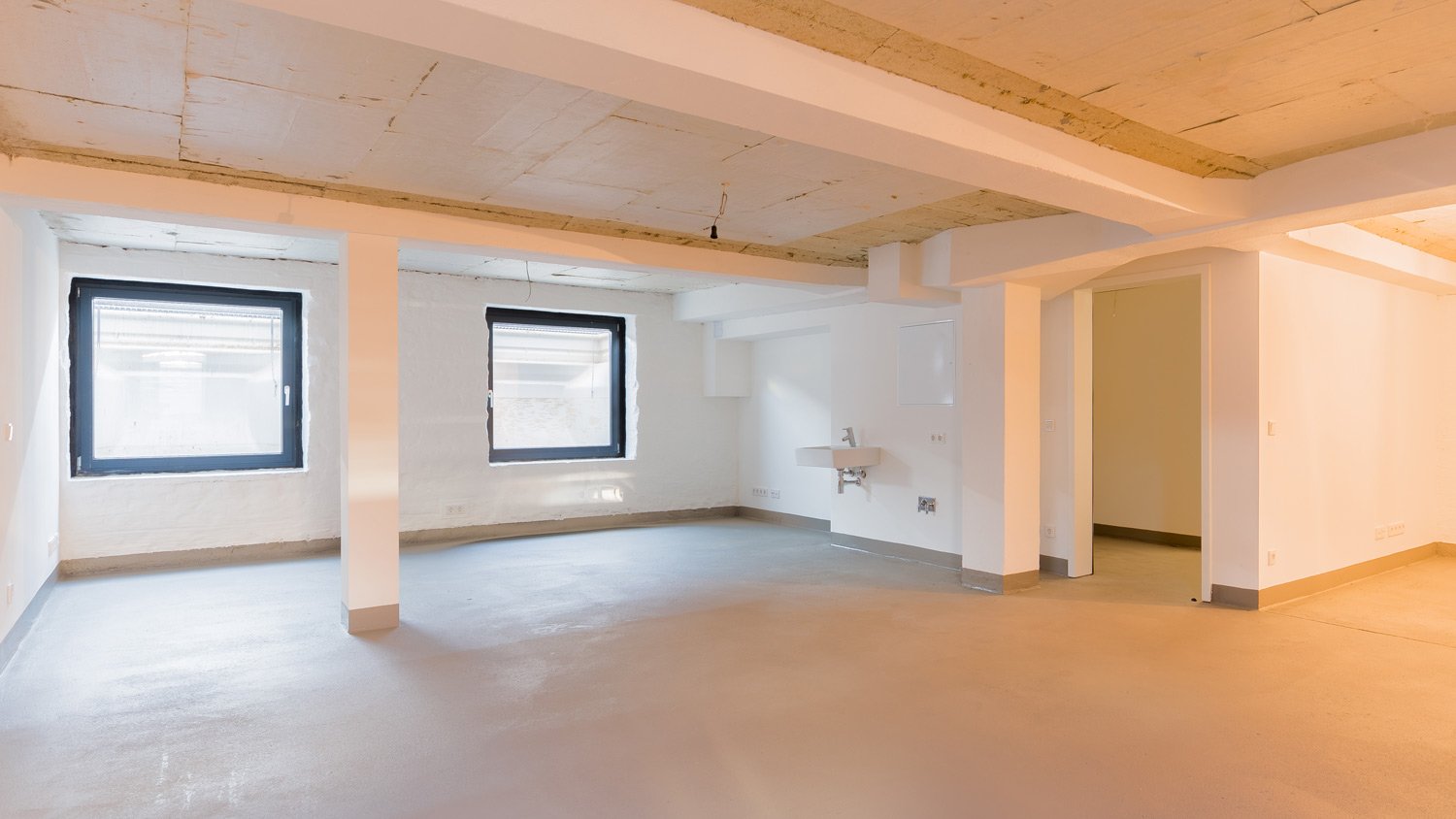
Picture windows are single frame windows. The idea is that these windows frame your outside view like a picture. They are typically quite large and do not have the option to open.
| Pros | Cons |
|---|---|
| Good insulation | Can’t be opened |
| Large size lets a lot of light in | Cleaning from the outside can be difficult |
| No mechanical parts to replace over time | Cost to replace can be high |
Best for: Basements that have other windows that can open
This type of basement window is just what it sounds like: a window that provides a direct walkout between the basement and the home’s exterior. Typically, you’ll find these windows in basements where the house was built on sloped terrain or a raised foundation. Walkout windows are above ground level.
| Pros | Cons |
|---|---|
| Convenient access to outdoors | Higher installation cost |
| Let a lot of light in | Can increase property tax |
| Can make the basement feel bigger | Susceptible to wind and water damage |
Best for: Basements suited for hosting social events
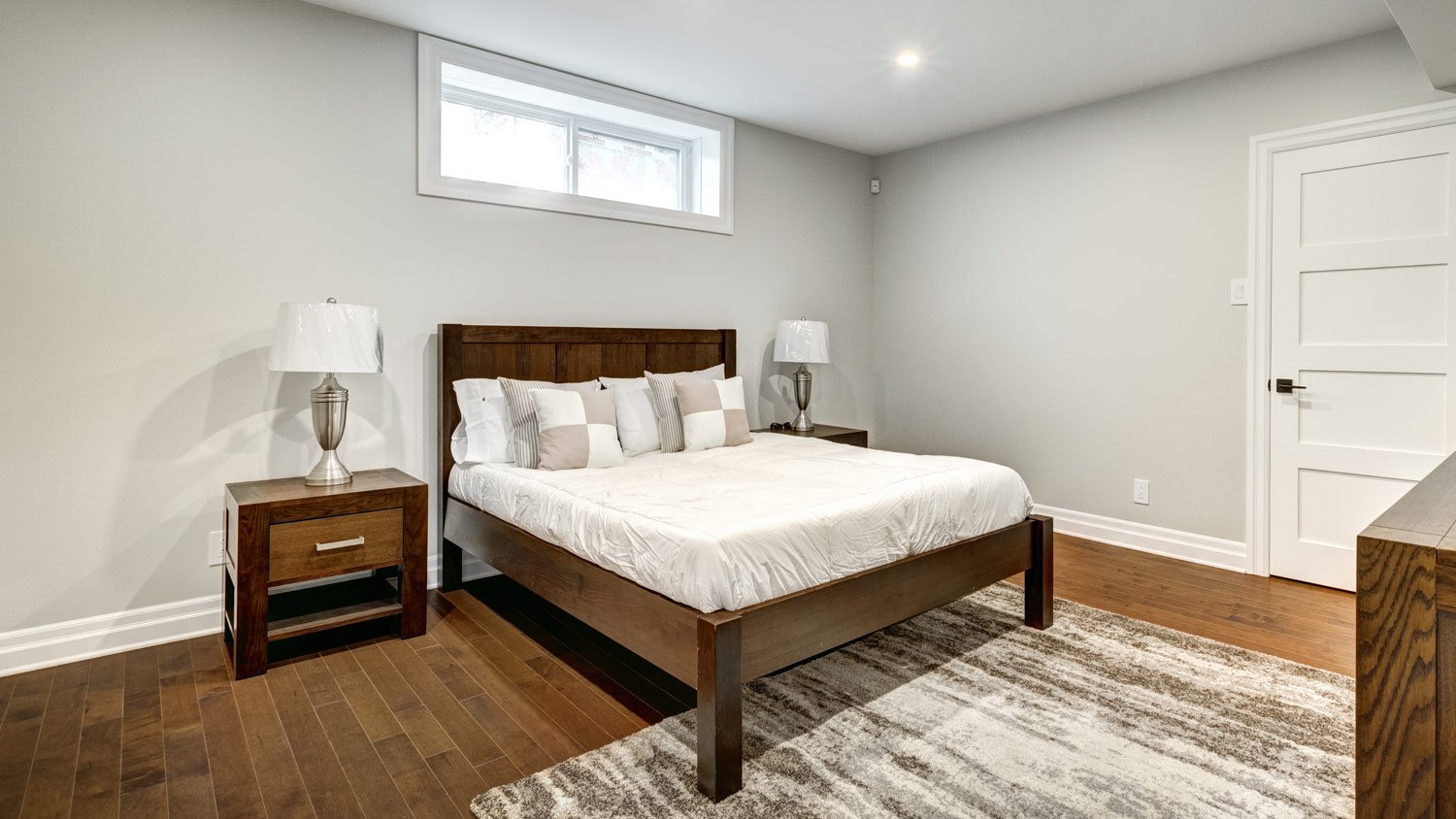
Sliding windows are another type of basement window that sound like what they are. This type of window is made of two pieces that slide across each other horizontally to open and close the window. Sliding windows are one of the more common types that you’ll find in a basement, and while they are super easy to operate and generally affordable, they usually run a bit smaller and don’t let as much light in.
| Pros | Cons |
|---|---|
| Easy to operate | Can be difficult to open in snow or ice |
| Affordable | Can be hard to clean |
| Tend to be smaller in size |
Best for: Basements used for occasional recreation and/or storage
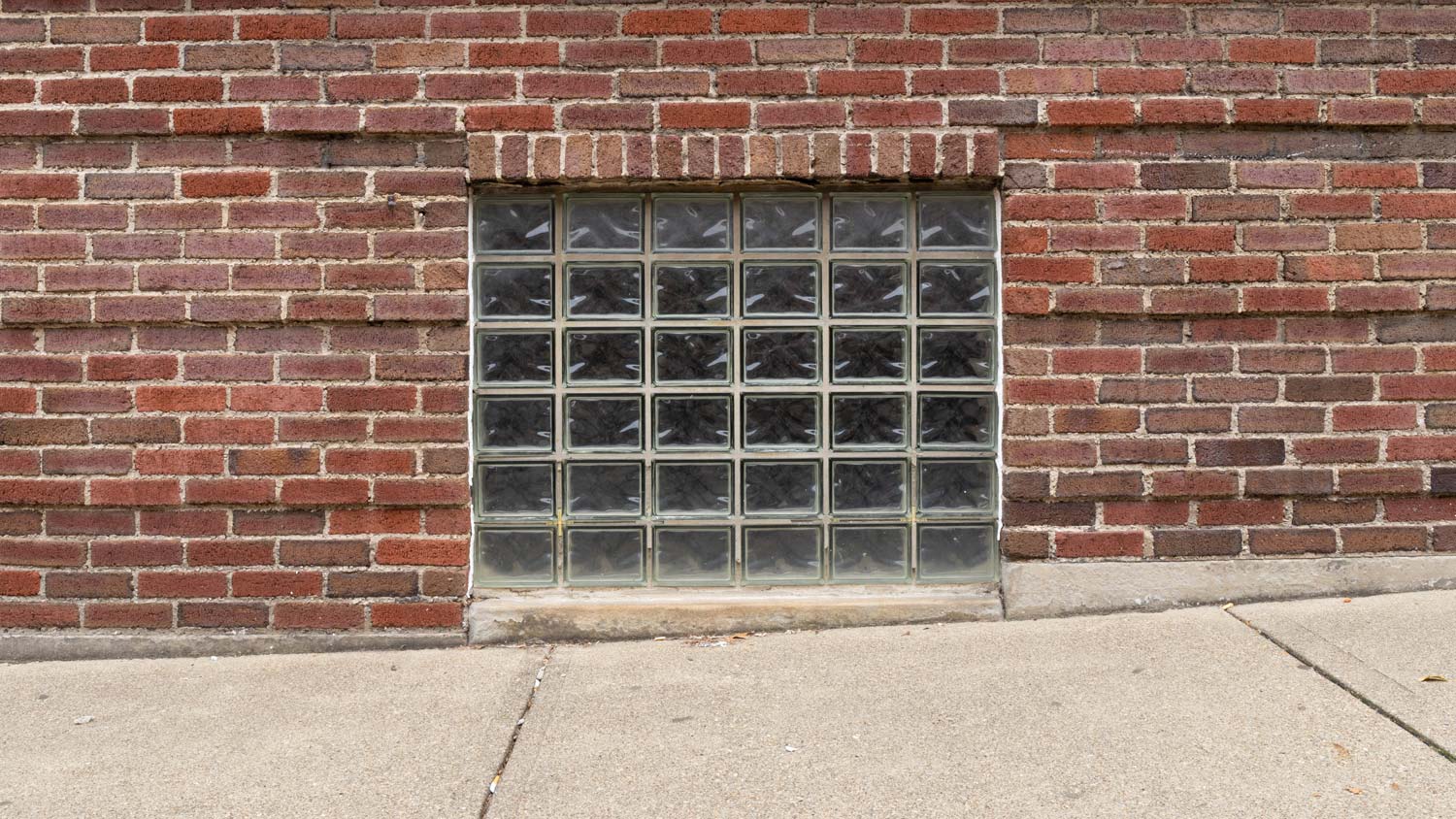
Glass block windows are quite unique in their look and design. Instead of a single pane of glass like traditional windows have, glass block windows are made of multiple blocks of thick glass which are then inserted into a window frame. This type of basement window has proved to be energy efficient and let a lot of light flood into a room without anyone being able to see through them from the outside. On the other hand, they are a bit more expensive and require high maintenance, so you’ll need to factor a window replacement contractor into your ongoing budget.
| Pros | Cons |
|---|---|
| Energy-efficient | Can’t be opened |
| Offer some sound proofing | Can be costly |
| Let a lot of light in | High-maintenance |
Best for: Basement gyms, studios, or other spaces that necessitate privacy
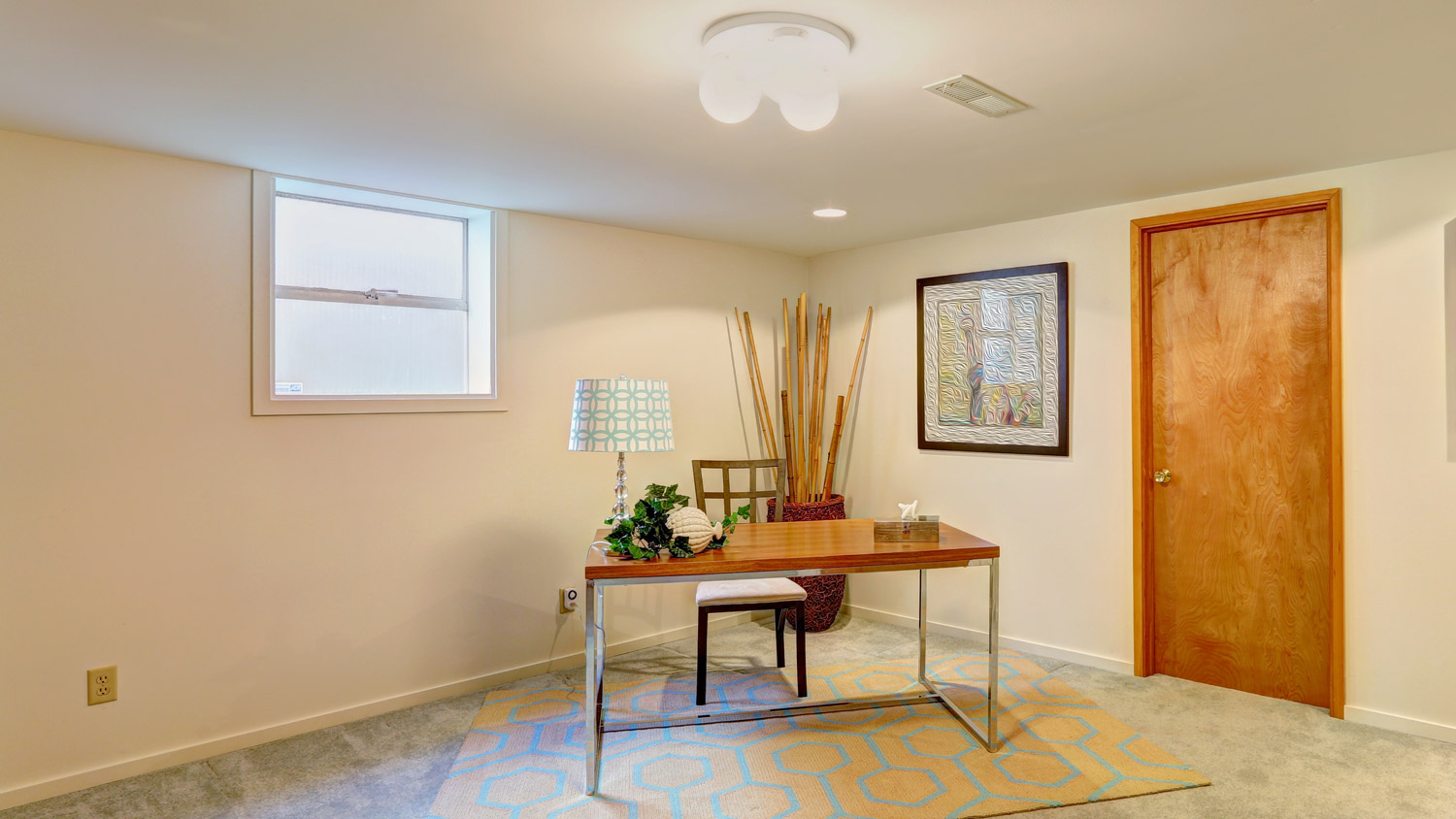
Double-hung windows are probably the most common type of basement window. These windows don’t have fixed sashes; instead, they have two operable sashes that slide up and down. Double-hung windows offer good ventilation and natural light, and they can be tilted into the house for easy cleaning.
| Pros | Cons |
|---|---|
| Good ventilation | Less energy-efficient than fixed windows |
| Let a lot of light in | Possible air leaks over time |
| Easy to clean | More parts mean more maintenance |
Best for: Basement bedrooms
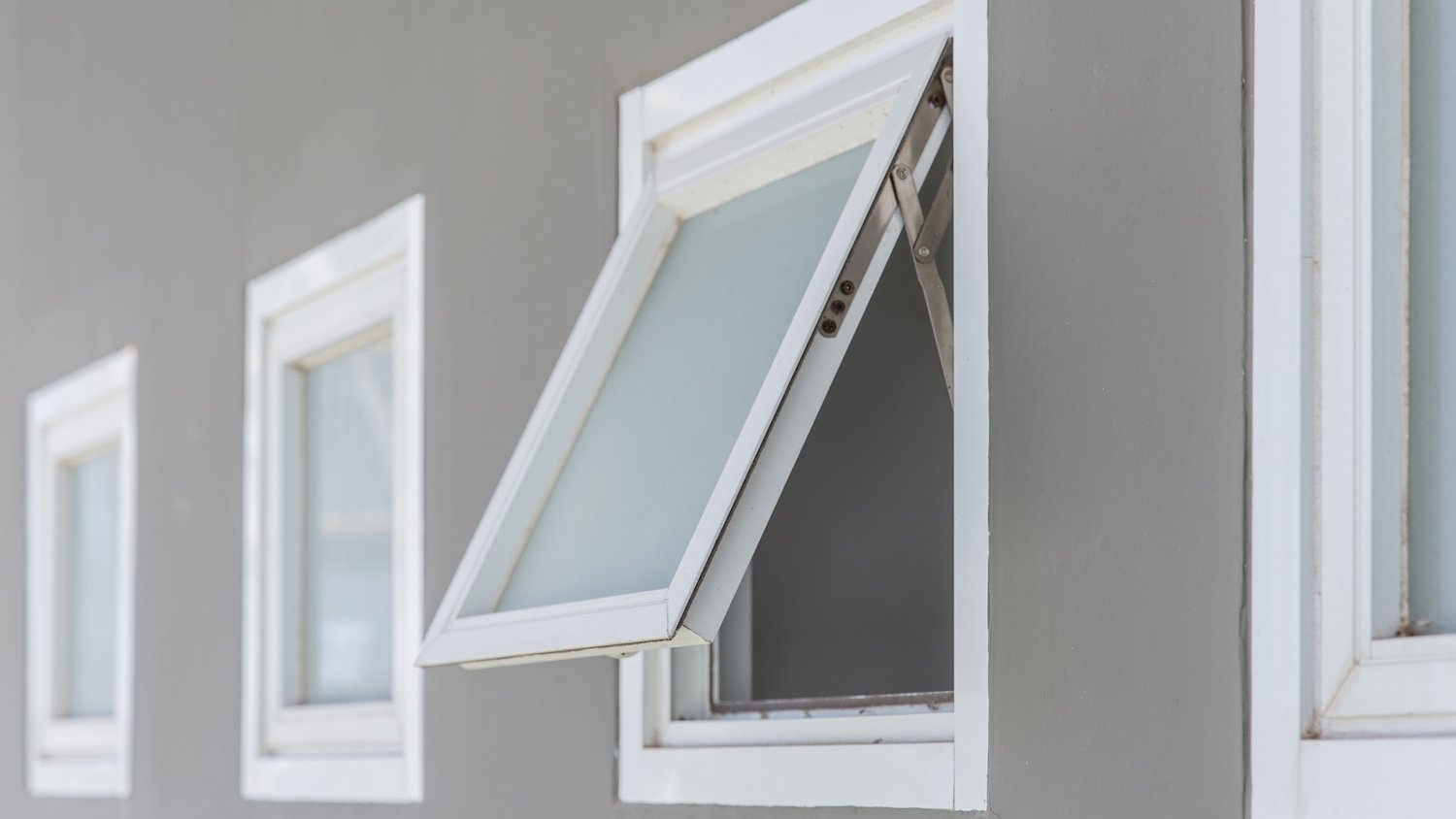
Awning windows are hinged at the top and open outward, resembling the look of an awning. They open up to a 45 degree angle and are typically wider than they are taller. Their unique design can keep out weather conditions like rain while still allowing fresh air in. They are, however, on the smaller side compared to some other types of basement windows.
| Pros | Cons |
|---|---|
| Protection from weather | Can be hard to clean |
| Good ventilation | Smaller than other window types |
| Don’t accommodate window AC units |
Best for: Basement kitchens or bathrooms
From average costs to expert advice, get all the answers you need to get your job done.

Discover egress window installation costs, and learn about average prices, cost factors, and ways to save on your egress window project.

Window wells bring more natural light into your basement and can act as a safe point of egress. Learn about window well replacement costs in this price guide.

An egress window can turn an unusable basement into a valuable living space. Learn what an egress window is and if it’s worth installing one.